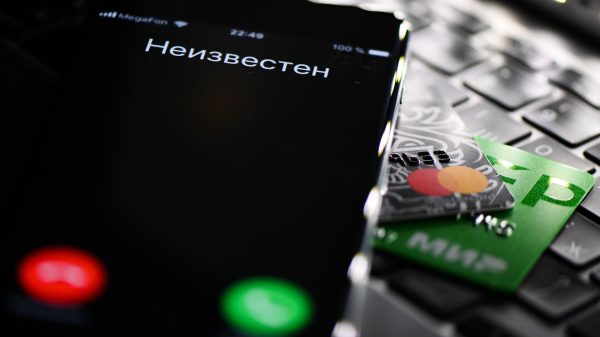
Items sold through sites like Amazon may not actually have a steep discount during Black Friday
Credit: Bloomberg
“Black Friday is all about retailers whipping shoppers into a frenzy in an effort to get us to part with our cash,” says Which? head of home products and services Natalie Hitchins, “but our research shows only 1pc of deals are cheapest on the day itself, so there is no need to buy on impulse.”
Ad retargeting so that products follow you around the internet
If you’ve ever felt like a certain product was following you around the internet, it’s almost certainly because an online retailer used ad retargeting in an attempt to convince you to return and buy it.
The technique works using cookies, small pieces of data saved to your web browser that let online retailers and digital advertising businesses follow your web browsing.
E-commerce sites hope that showing you items you looked at earlier will convince you to make the plunge and purchase it. They’re desperate to avoid what the industry calls “cart abandonment,” where shoppers add an item to their shopping cart but close the website before actually purchasing it.
Black Friday
‘Free’ goods that aren’t actually free
An online sales tactic which has become popular in recent years is companies offering unbelievable discounts where they seem to be giving away their products for free. Often, adverts claim a business is shutting down so it needs to dispose of its stock of desirable items like designer watches.
But when curious web browsers sign up to claim their free item, they’re hit with a high postage cost which can be more than £10.
It’s unlikely that the company supposedly going out of business ever existed at all, instead this is a frequent tactic used by online retailers to sell cheap Chinese wholesale items where the cost of the item and the retailer’s profit is all in the postage.
Using cookies to raise the price of items
The same cookies used to power ad retargeting can also be used by retailers to charge you higher prices if they think you’re going to make a purchase. It’s a common tactic used by airlines to bump up prices if you browse for flights before but left the website without actually booking a flight.
When you return, the flight may have increased in price. That’s often because the airline’s website has seen the cookie left on your device and raised the price, meaning you end up paying slightly more since you didn’t book the flight the first time around.
Black friday
How to game the system and shop smart on Black Friday
There are ways to be smart about Black Friday and online shopping so that you can use your own technological tricks to avoid falling prey to these schemes.
Use an online price tracker such as Keepa or camelcamelcamel to research how the price of items sold online have changed over time. You can use these tools to detect fake online sales where you may actually be paying more than the standard price.
Just as retailers promote their products on social media, you can also use social media to hunt down coupon codes for the websites you’re buying from.
On a retailer’s Facebook page, visit the “Page transparency” section. Then find the “Ad Library” link which will show you ads currently being displayed by the company. Chances are some of the social media promotions might give you a discount.
And if you’re worried about retailers retargeting items to you or raising the prices on deals you’ve seen before, try clearing your browser’s cookies and the entire cache.

























































Свежие комментарии